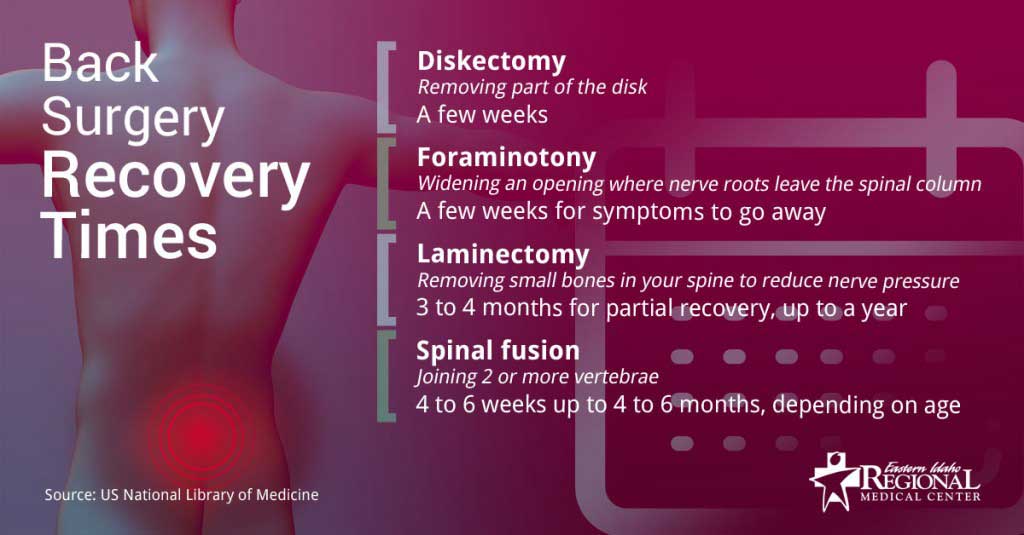Both you and your doctor have decided that back surgery is the next step to help you manage your chronic, crippling back pain. But your head may be spinning with questions. What's surgery like? How long will it take to get better? Who will help me after surgery?
You can prepare yourself”psychologically and practically”for back surgery by taking these 4 key steps.
1. Ask Questions.
You must have a million questions. Ask them. You may need to ask your doctor questions before, during, and after the procedure.
Among the things you may consider asking are:
- How long will I be in the hospital?
- What symptoms warrant a call during recovery?
- What activities are safe to resume and when?
- How do I control any post-surgery discomfort?
Also, check with your insurance company to see if your policy covers back surgery. Even if it does, be sure to go through the fine print.
Some insurance companies will cover only in-network procedures. Some won't cover it if they don't deem it medically necessary. It's also good to have an idea of what your out-of-pocket costs will be.
2. Rethink Your Living Space.
Okay, so it's not about redecorating. It's about making your living space after surgery a lot easier to use. Start to put everything within easy reach. If you have dishes in high cupboards, take them down. Put pens, paper, phone chargers, and other frequently used items on tables.
Reorganize your closet so that clothing and accessories are easy to access. Or get slip-on shoes, so you don't need to bend over to tie laces.
3. Phone A Friend.
For the first few days, have someone come check on you at regular intervals. In the very early stages, you may need some help doing errands or being driven around.
You use your back a lot more than you think. Even in the smoothest of recoveries, you'll have limited movement for at least a few weeks, according to the US National Library of Medicine.

Source: US National Library of Medicine
4. Give generously.
Donating your blood isn't necessary before all back surgeries, but it may be a good idea for some, according to the American Academy of Orthopedic Surgeons.
Blood loss can occur during surgery, and it's good to have an available replacement. Talk to your doctor about using your blood or donor blood.
Surgery prep before your operation may seem intimidating at first, but following even these simple steps will make your surgery”and recovery”infinitely easier.
If you're having back problems, contact the Spine Center at Eastern Idaho Regional Medical Center about treatment options.
$webqFacilityNumber
Need a Physician?